Challenges faced by medical professionals and literary insights on navigating the maze of medical practices
Here, we have shared books that can help you overcome problems associated with medical practices. Here, we have mentioned the problems and books
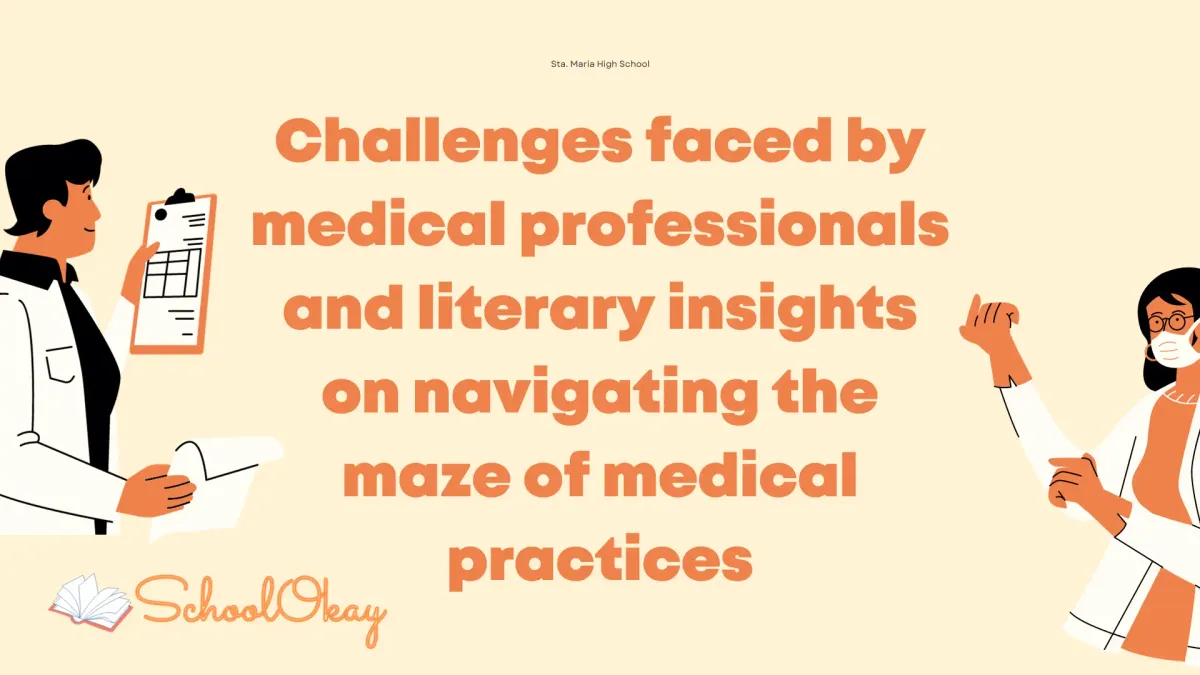
Introduction
One of the most challenging and rewarding professions anyone can choose is medicine. Medical professionals such as nurses, doctors, and other healthcare workers provide the first line of patient care. They dedicate their lives to preserving and enhancing the welfare of others, but their professional paths are still fraught with difficulties.
We'll talk about the various issues that healthcare professionals deal with in this article, and we'll also provide a list of some literary works that can help you understand these issues. We seek to illuminate the complexities of the medical field and the guidance provided by books that aid healthcare professionals in navigating their careers from a 360-degree perspective.
Long and unpredictable hours
Medical professionals frequently work long shifts that go beyond the typical 9-to-5 schedule. Work-life balance is frequently disturbed by patient care demands, emergencies, and the unrelenting pursuit of medical excellence. Healthcare workers' physical and mental health may suffer due to the long and demanding hours, which can lead to burnout.
Book recommendation: Samuel Shem's The House of God
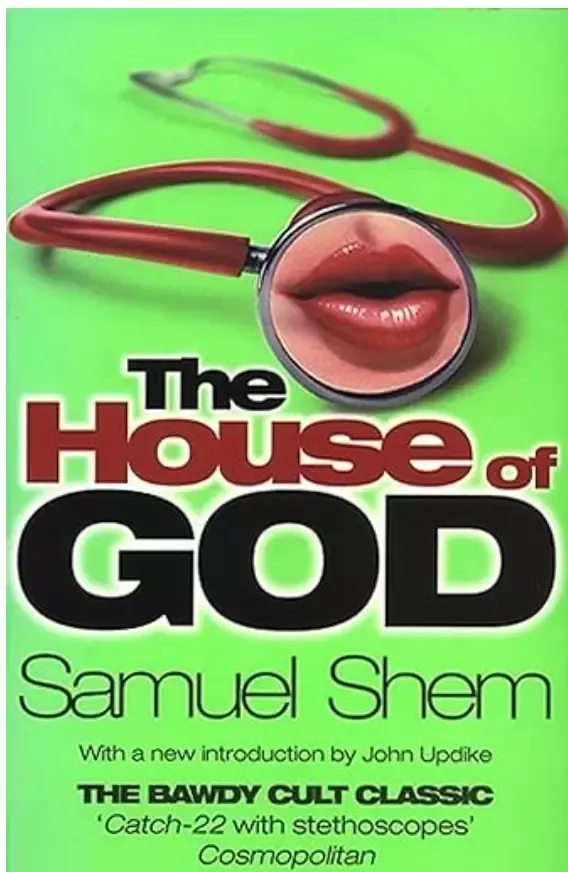
Under the pen name Samuel Shen, psychiatrist Steph N. Bergman wrote The House of God. This book is frequently suggested to aspiring and working healthcare professionals because it has become a classic in medical literature.
This book recounts the author's experiences working as a medical intern at Boston's Beth Israel Hospital in a semi-autobiographical manner. The book explores the difficulties, absurdities, and moral conundrums encountered by medical interns and residents during their training in a satirical and darkly humorous manner.
Generations of healthcare professionals have found this book relevant, and it is still a stimulating and enjoyable read for anyone interested in the field of medicine.
Important lessons from this book
- Long hours and stress.
- Black humour.
- Patient care and taking this.
- Mentorship and Camaraderie.
- Reflection in healthcare.
High levels of stress
The medical industry is inherently stressful. Healthcare professionals need to be capable of making important decisions quickly, often under extreme pressure. The emotional toll of seeing a patient suffer, combined with the duty they have to manage life-or-death situations, can result in chronic stress, anxiety, and even post-traumatic stress disorder (PTSD).
Recommendation for a book: Paul Kalanithi's "When breath becomes air."
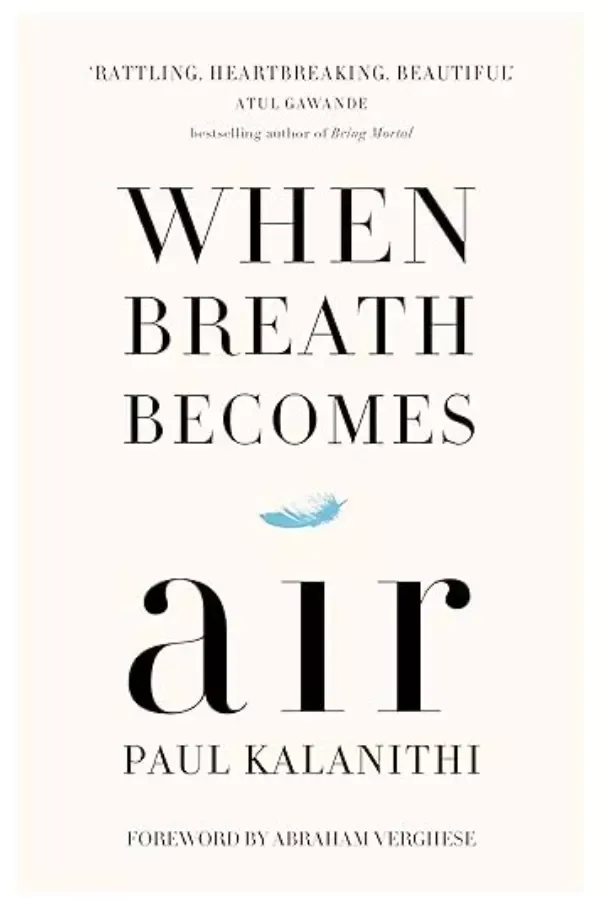
The memoir, written by Dr. Paul Kalanithi, is incredibly moving. Since its posthumous publication in 2016, the book has received high praise for its moving examination of life, death, and the search for meaning in the face of prognosis.
The book is a stirring memoir with exquisite writing that deeply affects its audience. It serves as a reminder of the frailty of life, the value of discovering meaning and purpose, and the human spirit's resiliency in the face of difficulty. Numerous people have been moved by the book, which also serves as a point of reflection and inspiration for both patients and the general public.
Important lessons from this book
1. The search for meaning
2. Impermanence and mortality
3. Coordinating roles
4. The therapeutic value of narrative
5. Compassion and empathy
6. Perseverance and tenacity
The burden of paperwork and administration
While patient care is at the centre of medical practice, paperwork, documentation, and administrative duties take up a sizeable portion of a healthcare professional's time. The constant burden of paperwork can hinder the provision of high-quality care and cause frustration among medical professionals.
Book recommendation: "The Checklist Manifesto: How to Get Things Right by Atul Gawande."
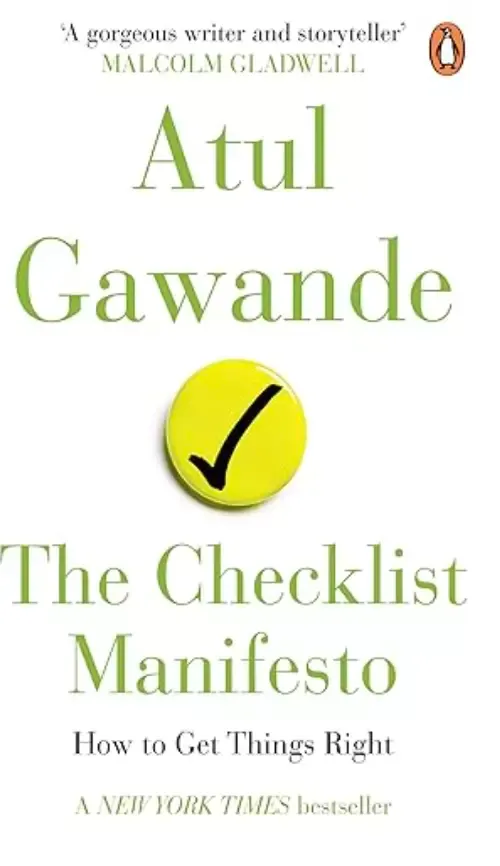
The surgeon, author, and public health researcher Dr. Atul Gawande is the author of this thought-provoking book. The book, which was released in 2009, examines how checklists can be used to increase productivity, decrease errors, and improve overall performance in a variety of industries, including healthcare, aviation, and construction.
The value of checklists as a practical and efficient method of managing complexity, lowering errors, and improving a variety of fields is emphasised in the book. The book gives professionals who want to improve their work processes and results priceless insight by using well-designed checklists.
Important lessons from this book
- Applications that cut across disciplines
- Communication and the human element
- Crisis management
- Ongoing development
- Flexibility and personalisation
- The effectiveness of discipline
- Lessened cognitive load
- As a tool, checklists
Fewer resources
Numerous healthcare facilities face resource limitations, including a lack of funding, staff, and necessary equipment. These restrictions may put additional stress on healthcare workers by requiring them to perform more tasks with fewer resources, which may compromise patient care.
I recommend reading Tracy Kidder's "Mountains Beyond Mountains."
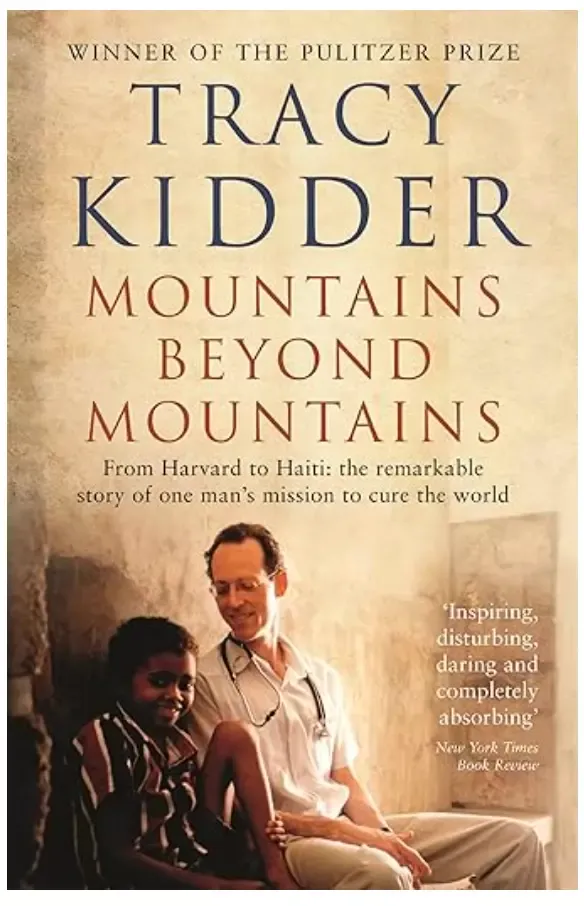
Author Tracy Kidder, winner of the Pulitzer Prize, has written a compelling nonfiction book. The book is a biography of Dr. Paul Farmer, detailing his life and career. An anthropologist and physician will devote his life to enhancing the health of nomadic communities in Haiti and other parts of the world.
The book challenges readers to think about the value of healthcare equity, social justice, and the influence people and organisations can have on the lives of those in need. The book exemplifies the commitment and compassion that can change the face of global health.
Important lessons from this book
- Concern for social justice
- Addressing disparities in healthcare
- Health Partners: Challenges and Resilience
- Advocacy for global health
- Cultural awareness
- Individual sacrifice
- Ethical and legal conundrums
Healthcare workers frequently face moral conundrums involving patient care, confidentiality, end-of-life choices, and informed consent. While attempting to give their patients the best care possible, they must navigate a complicated web of legal requirements and ethical guidelines.
I recommend reading Rebecca Skloot's The Immortal Life of Henrietta Lacks.
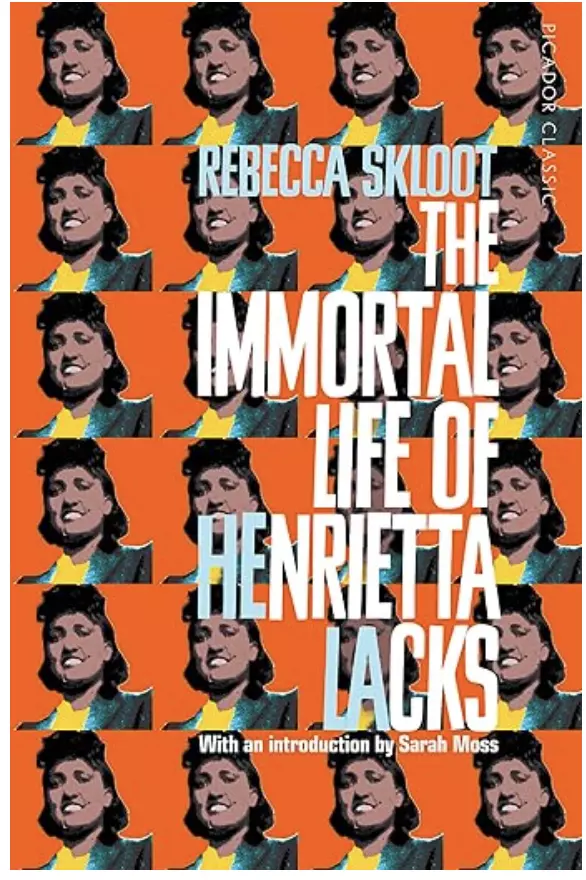
The engrossing and provocative non-fiction work examines the confluence of science, race, ethics, and medical history. The book illuminates the stories of Henrietta Lacks, an African American woman whose cells were removed against her will and used to advance a great number of scientific endeavours.
This book is a must-read for anyone with an interest in bioethics, the history of medicine, or the nuanced interactions between science and society.
Important lessons from this book
- Medical morals
- The HeLa cell
- Scientific Progress
- Kinship and legacy
- Bioethics
- The author's research
- Healthcare disparities based on race
Customer expectations
Patients typically have high expectations for their medical experiences in the current healthcare environment. Patients are now more able to demand individualised treatment plans and more thorough care thanks to the proliferation of easily accessible medical information online. It can be difficult to meet these expectations, particularly when working with complicated medical cases.
Book recommendation: Atul Gawande's Being Mortal: Medicine and What Matters in the End.
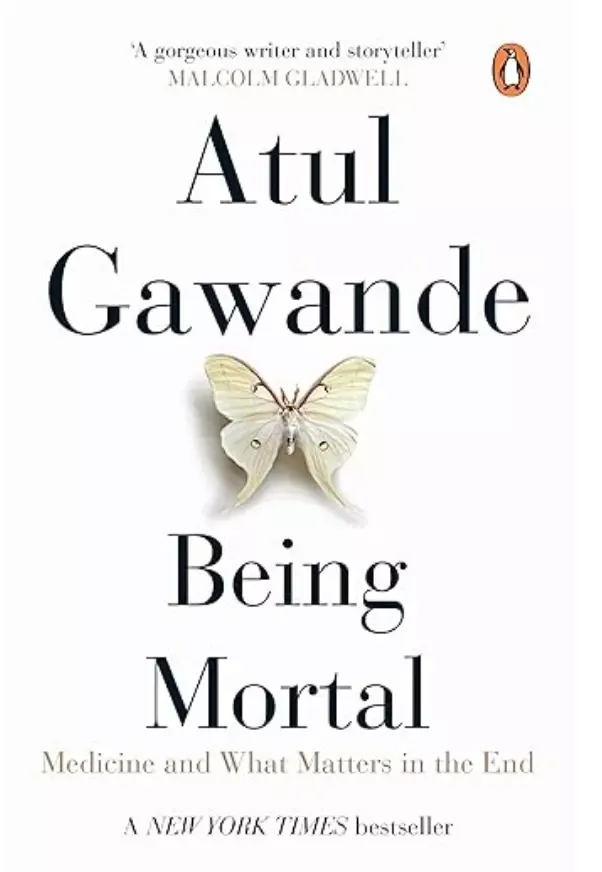
This book explores ageing, end-of-life care, and the meeting point of medicine and humanity in a thought-provoking and insightful manner. The book, which was first released in 2014, questions traditional notions of healthcare and calls for a rethinking of how we handle the care of the elderly and terminally ill.
The book challenges readers to consider their beliefs and preferences about end-of-life care. It emphasises the value of maintaining autonomy, dignity, and pursuit of what matters in the final stages of life. Healthcare professionals, carers, and anyone interested in a more general discussion about ageing and end-of-life care are all encouraged to read the book.
Important lessons from this book
- Ageing's complex processes.
- Frank discussion.
- Ageism medicalization.
- Freedom to make decisions.
- Putting quality of life first.
- The function of palliative care and hospice.
- A multifaceted strategy.
- The function of families.
- Considering mortality.
- The moral requirement.
- Issues with mental health.
Healthcare workers' mental health may suffer due to the demanding nature of their work, exposure to trauma, and difficult suffering. Some common problems in this field include burnout, depression, anxiety, and PTSD. These problems are frequently worsened by a culture that does not stigmatise getting help.
Darkness Visible: A Mentor of Madness by William Strong is a suggested reading.
A compelling and open account of the author's struggle with severe depression can be found in this book. A first-person account of the darkness and despair that can engulf a person's mind, this brief but profound memoir offers insights into the experience of mental illness.
An unfiltered and unvarnished look into the world of depression provides a personal account of one person's struggle. A more comprehensive viewpoint on the difficulties faced by people with mental illness. It serves as a testament to the significance of asking for assistance, ending the taboo surrounding mental health, and finding hope and resilience even in the most trying circumstances.
Important lessons from this book
- Awareness and advocacy.
- It's a hopeful message.
- Considering creativity.
- The value of seeking assistance.
- Stigma and misperception.
- Depression is a global condition.
- Darkness of depression.
- Communication difficulties.
The foundation of good healthcare is clear communication. Miscommunication between healthcare professionals and patients, or between patients' families and patients, can result in medical errors, patient dissatisfaction, and patient health problems. It's crucial to have lucid and sympathetic conversations in order to promote trust and provide the best care.
Book recommendation: Christie Watson's The Language of Kindness: A Nurse's Story.
This heartfelt memoir offers a poignant and compassionate window into the field of nursing and the crucial role nurses play in the healthcare system. The author provides perspectives on the difficulties, pleasures, and emotional depth of nursing through personal anecdotes and experience.
The book honours the kindhearted and committed people who choose to work as nurses. It serves as a reminder of the value of kindness, empathy, and interpersonal relationships in the healthcare industry and shines a spotlight on the often underappreciated medical workforce: nurses.
Important lessons from the book
- Human interaction.
- Nursing as a profession.
- Patient accounts.
- Kindness in nursing.
- Deficiency and Strength.
- Support for nurses.
- Communicating and listening.
- Joy and satisfaction.
- The patient's sorrow and loss
Healthcare professionals frequently develop close relationships with their patients, and it can be emotionally challenging to witness patient suffering and loss. The healthcare industry requires practitioners to manage patients' emotions and deal with their grief.
Book recommendation: Will Schwalbe's The End of Your Life Book Club
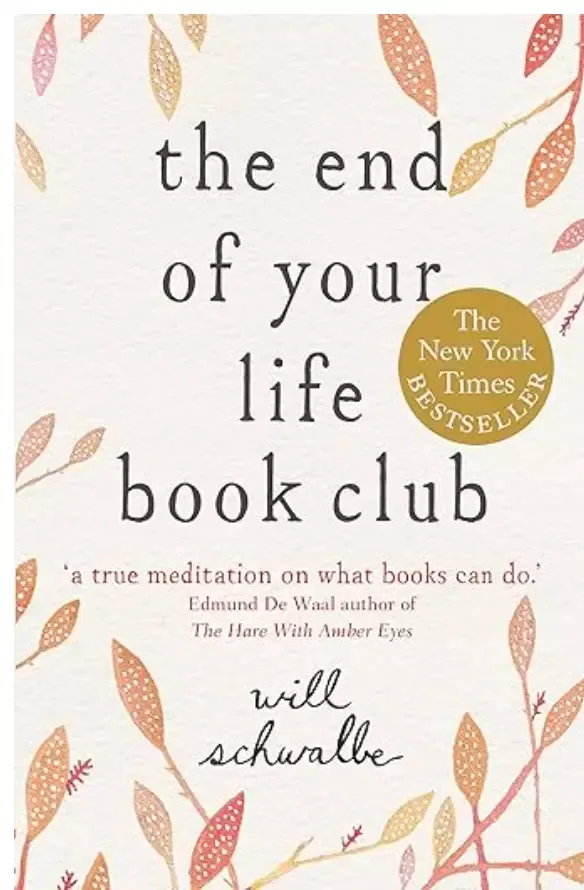
A moving and introspective memoir, The End of Your Life Book Club examines the profound relationship between literature, family, and end-of-life care. It describes the author's experience accompanying his mother through her cancer treatment and their book-related conversations.
It is an emotional investigation of the relationships between literature, family, and mortality. Also emphasised are the value of embracing life's profound moments, even in the face of death, as well as the connection we have with our loved ones and the ability of books to spark meaningful conversations.
Important lessons from this book
- Using books to establish connections.
- End-of-life discussion.
- The function of caretakers.
- The therapeutic value of literature.
- The value of family.
- Recommended Reading.
- Valuation reflection.
- Loss and grief.
- Encouragement and legacy.
- Certification and ongoing education.
The practice of medicine is constantly evolving. To stay abreast of cutting-edge medical science and technology, healthcare professionals must pursue lifelong learning. Maintaining certification and licensure requires dedication and an ongoing commitment to professional development.
Journals and resources for continuous medical education (CME) are recommended as books.
Continuing medical education is crucial for healthcare professionals to stay abreast of the most recent medical advancements, recommendations, and best practices. CME journals and resources are important tools for expanding one's clinical knowledge base. The following are some reliable CME journals and resources for medical professionals:
- Medical Journal New England.
- The American Medical Association Journal.
- In The Lancet.
- Internal Medicine Annals.
- American Household Medical Medscape.
- UpToDate.
- Education Centre of the American Medical Association.
- The Council for Accreditation in Medical Education.
- The American National Institutes of Health.
- College of American Physicians.
- America's Family Physicians Association.
- College of Surgeons in America.
- The North American Radiological Society for Academic Emergency Medicine.
The specific requirements and availability of CME credits may differ between these resources. Healthcare professionals should check the CME activities' accreditation and eligibility requirements and select those that best suit their clinical specialisations and educational needs.
Conclusion:
The medical industry faces numerous difficulties that call for both systemic reforms and individualised mitigation plans. Healthcare professionals can work towards a more suitable and fulfilling practice by acknowledging and addressing these issues.
Reading books that explore these issues can also offer insightful perspectives and empathy. And a source of inspiration for those hoping to work in medicine. These books offer advice on professional and personal development, resilience, and compassionate care, in addition to illuminating the complexities of the medical field.
Also read the following:
Top entrepreneurship books you can read to get viewpoints about startups.
7 Habits Of Highly Effective People.
The best real estate books that can help you with investment in real estate.
Share and subscribe to the blog by email.


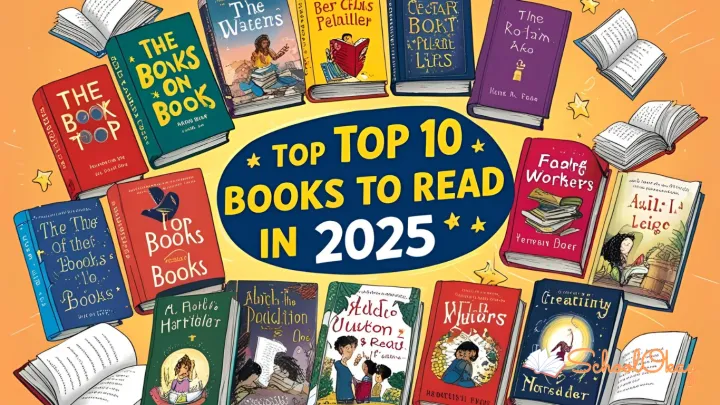
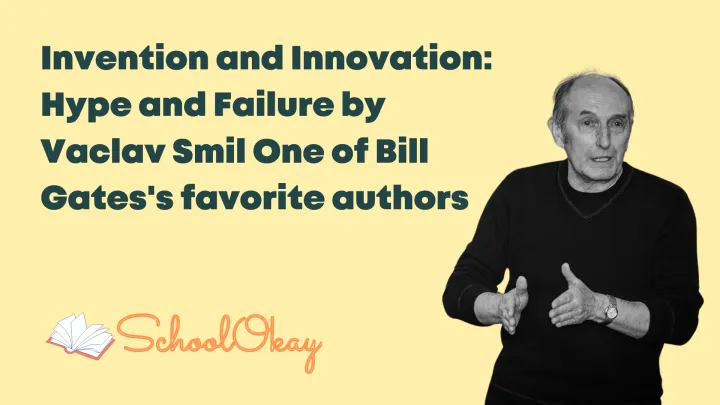
Comments ()